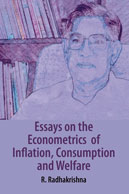New Releases...
Download Catalogue...
Download Excel Data
Download PDF Catalogue
You will get a Excel file with detail about catalogue.
You will get PDF file with detail about catalogue.
Detailed info...
Judicial Reforms in India
Issue And Aspects
Subhrangsu Goswami‚ Bibek Debroy
About the Book
<p>Vulnerability to poverty is clearly linked to the Poor’s access to primary entitlements, which in turn depends on a functioning ‘public realm’. Justice and judicial reforms are central to this. Policy-making for an efficient and citizen-oriented judiciary in India has always lacked a comprehensive approach. The ‘piece meal’ initiatives hitherto initiated never became imbedded. </p>
<p> </p>
<p>The essays in the book articulates for the very first time for India, a wide-ranging judicial reform agenda that includes improvements in judicial governance, its linkages to economic growth, alternate dispute resolution, human resource development in the judicial branches, the use of IT, legal education, judicial and non-judicial training, and funding civil society initiatives for legal empowerment. Every essay forms a vital arm in the area of Judicial Reforms. </p>
<p> </p>
<p>However, the trajectory of suggested judicial reforms echoes the classic law and development movement bypassing the legal profession, which is less by design and more by default.</p>
About the Author(s) / Editor(s)
<p><strong>Arnab Kumar Hazra </strong>is a staff consultant to the Asian Development Bank for the India Administration of Justice Project. He has been a Fellow with the Rajiv Gandhi Institute for Contemporary Studies, Delhi, Economic Advisor to the Embassy of the Republic of Korea and Consultant to the National Council of Applied Economic Research (NCAER), Delhi. He is a professional economist and was educated in St. Xavier’s College (Calcutta) and Jawaharlal Nehru University (New Delhi). He has worked and published nationally and internationally in the area of legal reforms. His special interests, besides legal reforms, are in labour laws and natural resource economics.</p>
<p> </p>
<p><strong>Bibek Debroy </strong>is Secretary General, PHD Chamber of Commerce and Industry, Delhi. He was earlier Director, Rajiv Gandhi Institute for Contemporary Studies (RGICS), Rajiv Gandhi Foundation, Delhi. He is a professional economist and was educated in Presidency College (Kolkata), Delhi School of Economics and Trinity College (Cambridge). He has worked at Presidency College (Kolkata), Gokhale Institute of Politics and Economics (Pune), Indian Institute of Foreign Trade (Delhi), National Council of Applied Economic Research (Delhi) and as Consultant, Department of Economic Affairs, Ministry of Finance, Government of India. He was also the Director for a project known as LARGE, set up by the Ministry of Finance and UNDP to examine legal reforms. He is the author and editor of several books, papers and popular articles and is also Consulting Editor with Business Standard. Bibek Debroy’s special interests are international trade (in particular the WTO), law reform and the political economy of liberalisation in India.</p>
Contributors
<p><strong>Carl Baar</strong> is Professor Emeritus, Brock University, St. Catharine’s, Ontario, Canada. He is also Adjunct Professor of Political Science, York University, Toronto, Ontario, Canada; and Principal, Justice Development International Ltd.</p>
<p> </p>
<p> </p>
<p><strong>Amarjit Singh Bedi</strong> is an advocate and practices in the Supreme Court of India as well as in the Delhi High Court. He has been associated as a consultant on information technology to the India Administration of Justice Project.</p>
<p> </p>
<p> </p>
<p><strong>Laveesh Bhandari</strong> heads Indicus Analytics, an economics research firm. He completed his Ph.D. in Economics from Boston University in 1996 and his thesis received the Best Thesis in International Economics Award by EXIM Bank of India. He was also awarded the Hite Fellowship for his work on international finance. He began his career as a Consultant for Manhattan (now Brookdale) Funds, New York and joined the National Council of Applied Economic Research (NCAER), New Delhi, as a Senior Economist in 1997. He has taught economics at Boston University and IIT Delhi and was also the Managing Editor of the Journal of Emerging Market Finance.</p>
<p> </p>
<p> </p>
<p><strong>G.C. Bharuka</strong> is a former Judge of the High Courts of Karnataka and Patna. Presently he is the Chairman of the E-Committee of the Supreme Court of India, which is in charge of the project to implement ICT in the judiciary. He is the author of the book Rejuvenating Judicial System through E-Governance & Attitudinal Change. His specialisation, apart from information technology, is in the areas of intellectual property, commercial contracts, telecommunication, insurance and corporate law.</p>
<p> </p>
<p> </p>
<p><strong>Debashis Chakraborty</strong> is Assistant Professor at the Indian Institute of Foreign Trade, New Delhi. Debashis has been educated at University of Calcutta and Centre for International Trade and Development, JNU. He has earlier worked in Rajiv Gandhi Institute for Contemporary Studies (RGICS), New Delhi as a researcher.</p>
<p> </p>
<p> </p>
<p><strong>Pavel Chakraborty</strong> is Research Associate, Global Agreements of Legislation and Trade, The Energy and Resources Institute (TERI), New Delhi.</p>
<p> </p>
<p> </p>
<p><strong>Kevin E. Davis</strong> is Professor of Law, New York University School of Law, USA. He joined NYU from a professorship at the University of Toronto, and works on commercial and financial law aspects of law and development and related issues of governance. He has particular expertise on Caribbean and small island economies and polities. He is co-author of a major study of these issues with Michael Trebilcock (2005), and has also written an economic analysis of the OECD Anti-Bribery Convention.</p>
<p> </p>
<p> </p>
<p><strong>Robert G. Hann</strong> is an economist and criminologist who has been leading justice-related research and reform projects for over 30 years. As a Principal of Justice Development International Ltd. (JDI) and Robert Hann & Associates Limited, he is currently leading projects to evaluate the pilot family court in Trinidad and Tobago, to develop a strategic plan for the Jamaican Criminal Justice System, to evaluate an alternative model of delivering legal services in criminal cases (in Canada), to develop judicial bench books for cases with self represented accused in civil, family and criminal cases, and to assess alternative governance models for court administration. He has also worked recently in India in the areas of court performance standards, information systems and facilities.</p>
<p> </p>
<p> </p>
<p><strong>Maja B. Micevska</strong> is a Senior Researcher at the ESCE, and a Senior Fellow at the Center for Development Research, University of Bonn. She earned her Ph.D. in Economics at Claremont Graduate University. Her main fields of research are development economics, labour economics, population economics, and the economics of transition with a special focus on transition mobilities.</p>
<p> </p>
<p> </p>
<p><strong>Nandan Nawn</strong> is Lecturer at the WB National University of Juridical Sciences, Salt Lake, Kolkata. His area of interests are Environmental Economics, Development Economics and Law and Economics.</p>
<p> </p>
<p> </p>
<p><strong>Murali Sagi</strong> is Director, Information Systems and Strategic Planning, Judicial Commission of New South Wales, Sydney, Australia. He has written and published extensively on the use of information technology in the courts.</p>
<p> </p>
<p> </p>
<p><strong>Videh Upadhyay</strong> is an advocate and practices in the Supreme Court of India. He is a former Visiting Fellow at Centre for Law and Governance, Jawaharlal Nehru University, New Delhi and the University of California, Berkeley. He is closely associated with United Nations Development Programme (UNDP) and Department for International Development (DFID) India in furthering the area of law reform in the country. He has also recently authored a comprehensive work titled Public Interest Litigation for the Halsbury’s Laws of India.</p>
<p> </p>
<p> </p>
<p><strong>Barry Walsh</strong> is an international law and justice sector consultant who specialises in court and judicial administration policy development and institutional strengthening. Admitted to the bar of New South Wales in 1985, he has a diploma of law and post graduate qualifications in public sector management and change management. After a long career as a bureaucrat and court administrator in Australia, he has worked in the justice sectors of Papua New Guinea, Indonesia, Nepal and India.</p>
Print Brochure...
Print as it is
Customised brochure
You will get a printout of what you see on your screen under 'Detailed Info'(Uneditable).
You will have the opportunity to edit the text and adjust the extent to fit on A4 size sheet or more accordingly as you desire. Plus, you can download the edited/customised Brochure or simply print it (CTRL + P).


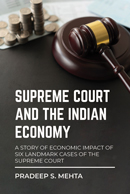
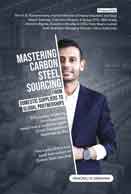



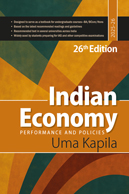
-web-194.jpg)
-front.jpg)
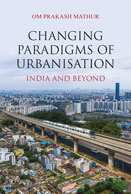








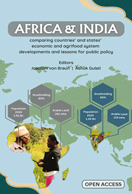
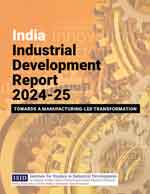
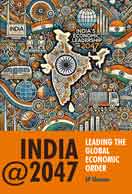
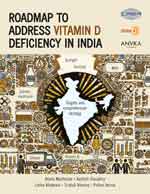
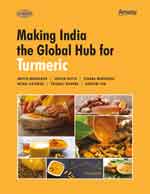
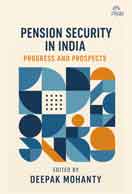
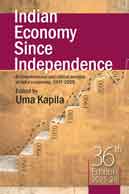
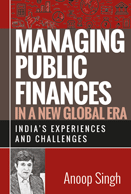
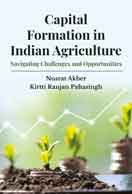









-COVER-web-194.jpg)





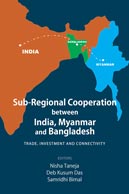






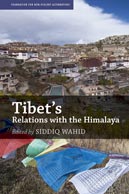



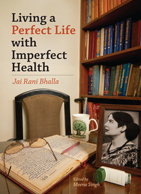












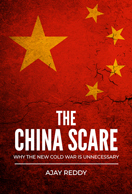
.jpg)






